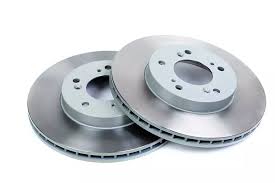WirralCar Repairs
Brake Discs
- Brake Caliper
- Caliper Piston
- Caliper Slider Pin (guide pin)
- Brake Disc
- Brake Pads
- Brake Hydraulic Pipe
- Dust Protection Plate

Common Issues
- Squealing or squeaking noises while braking
- Brakes are vibrating or pulsing when you step on the brake pedal
- Discs show grooves or score marks
- Longer than normal to slow down or stop

What Is Disc Brake System?
The disc brake mechanism located inside the rim of the wheels is the mechanism that provides braking (slowing down-stopping) of the vehicle. Disc brakes are used on the front wheels of all passenger cars and light commercial vehicles; on the rear wheels disc or drum brake system is used However, the four-wheel disc brake system is becoming increasingly common in new generation passenger cars. *Front wheels disc brake + rear wheels drum brake (most common in mid-range passenger cars). Front wheels disc brake + rear wheels disc brake (system that is increasingly common in middle class vehicles and is used as standard in upper class vehicles) Disc brake system is also widely used in motorcycles.
What Does Disc Brake System Consist Of?
Basic parts of the disc brake system
- Brake Caliper
- Caliper Piston
- Caliper Slider Pin (guide pin)
- Brake Disc
- Brake Pads
- Brake Hydraulic Pipe
- Dust Protection Plate
Operation of Disc Brake System (Disc Brake Working Principle)
By pressing the brake pedal, the pressurized hydraulic fluid from the brake master cylinder comes to the connection union on the caliper via the brake hydraulic hose. The hydraulic oil entering the caliper cylinder from the fitting pushes the piston in the cylinder forward, and by the forward movement of the piston, the pad is pressed right in front of the brake disc. With the friction of the pad against the disc, the wheel slows down and stops.
The disc brake system is also based on the Pascal principle. The mechanical force generated in the brake pedal is converted into hydraulic pressure in the brake master center, this hydraulic pressure is converted back into mechanical force in the caliper. The motion energy of the vehicle is converted into heat energy by the pads rubbing against the disc.
Advantages of Disc Brake System
- Balanced and non-pulling braking is possible
- Easier and faster cooling feature
- The pressing force of the pads is more
- The pads are easy to check and replace when finished
- Brake gap (pad-disc) can be adjusted by itself
- It can clean itself by rotating the disc in open environment